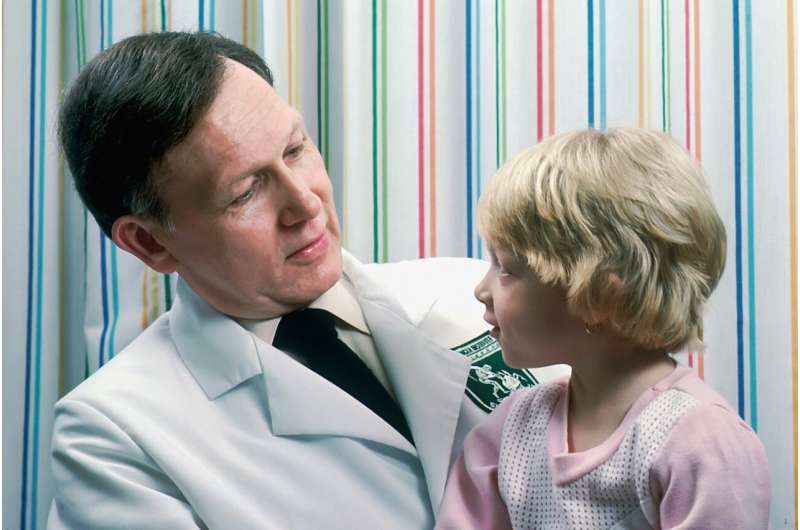This article has been reviewed according to Science X's editorial process and policies. Editors have highlighted the following attributes while ensuring the content's credibility:
fact-checked
reputable news agency
proofread
Studying use of patients' own reprogrammed cells to attack cancer as alternative to more chemo

A process of taking patients' own cells and reprogramming them to fight cancer has been a last-ditch option for blood cancer patients when nothing else worked, but a new study underway in Aurora is trying to determine whether more patients could benefit from trying the procedure sooner.
Chimeric antigen receptor T cell therapy, known as CAR-T, is a type of immunotherapy that involves taking cells from the patient's body and altering them to attack cancerous cells that have specific proteins on their surfaces. The patient then gets the altered cells by infusion.
A study at University of Colorado's Gates Institute on the Anschutz Medical Campus is looking at CAR-T in adult patients with acute lymphocytic leukemia, a cancer of the blood and bone marrow, whose first round of chemotherapy either failed or gave a disappointing response that suggests it won't work for long, executive director Dr. Terry Fry said.
This specific study is looking for safety and will have preliminary results next year. Assuming it doesn't find any problems, a larger study would test if patients do better when receiving CAR-T rather than another round of chemotherapy, Fry said.
When a cancer therapy is new and carries unknown risks, typically the first patients who receive it are those who are out of other options, Fry said. If it works well and doesn't cause unacceptable side effects for patients whose cancer resisted treatment, then researchers start looking into whether offering it earlier could make sense, he said.
"When we see something is successful, we forget that someone had to be that first patient" and take risks, he said.
Generally, people with the type of leukemia CU is studying have two options: chemotherapy or a bone marrow transplant, both of which can be grueling, Fry said. The advantage of CAR-T, when it works, is that the patient only has to take it once, he said.
"It can be advantageous to take a single treatment, get on with their life and have done with it," he said.
While nothing is certain, people who don't go into remission after being treated with chemotherapy often don't do much better with another round, so if studies find that giving them CAR-T earlier is effective, that could spare them another round of ineffective treatment, he said.
"The current (drug) label requires us to force that patient to get another line of treatment so they can relapse, and then we can give them a CAR," he said.
Immunotherapy carries its own risks, including secondary cancers, and a small number of patients have developed lymphoma after treatment with CAR-T for another blood cancer. Right now, it appears that developing lymphoma after CAR-T is "extremely rare," and no one is sure if the CAR-T caused it or if the patients' previous chemotherapy did, Fry said. Roughly 3% of patients who had one type of blood cancer develop a secondary cancer regardless of whether they received CAR-T, he said.
"It's very rare that a cancer treatment is a free lunch," he said. "So far, (secondary lymphoma) looks to be extremely, extremely rare."
T cells are the part of the immune system that kills infected cells. In CAR-T, they're altered to recognize and attack cells with selected proteins on their surfaces. Certain types of leukemia and lymphoma are relatively easy targets for CAR-T, because the type of white blood cell that has become cancerous has a protein that isn't located elsewhere in the body, Fry said.
And since people can live without those cells for a time, so long as they receive antibody drugs to protect them from disease, wiping out healthy cells along with the cancerous ones doesn't cause much collateral damage.
Developing CAR-T therapies for other cancers has been more difficult, Fry said. To develop a CAR-T that worked for solid tumors, they would have to find a protein on the surface of the cancerous cells that wasn't widely present in the healthy organ around it, and solve other challenges that aren't a factor with blood cancers, he said.
"I think we'll eventually figure it out," he said.
2024 MediaNews Group, Inc. Distributed by Tribune Content Agency, LLC.



















